3 Best Water Saving Tips for the Garden
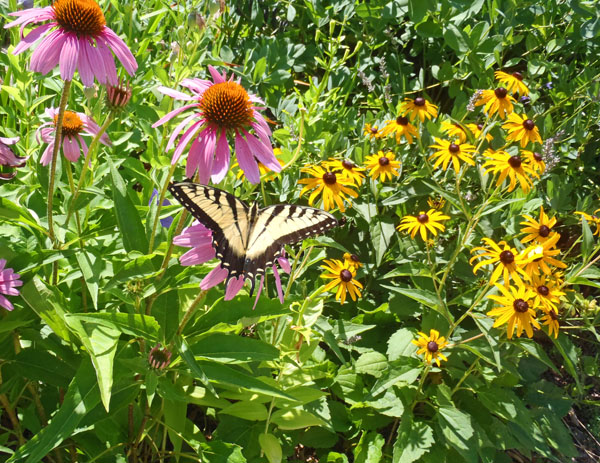
With August upon us and hot temperatures baking our gardens, it’s time to investigate ways to save water. Below are three awesome water-saving tips for the garden that might help you keep your garden in better shape for less money through the hot season.
1 – Place Plants with Similar Needs Together
Rainfall is incredibly variable annually and the amount of water you need in your garden varies as well. Summers in Illinois can be swelteringly hot and drought is a regular concern in late July and August. Some plants, like roses or begonias, will need constant attention during these months. However, other types of plants, like sedum or prickly pear cactus thrive in the heat. Planting beds according to watering requirements is as important as grouping plants accordingly for sunlight requirements. Placing plants with other plants that have very similar water needs (see above) will help you have more long-term success with growing. As a rule of thumb, it is better to water your plants deeply once or twice per week – at least one inch of water – rather than water shallowly every day of the week.

2 – Use a Timer for Your Drip Systems
This season I installed drip systems on my elevated beds from Gardeners.com. I am attaching a programmable timer to the drip irrigation and watering in the early morning hours so that I save water and can be assured that even when I am out of town touring my elevated beds are being taken care of properly. Above you see the WaterEase Programmable Timer from Gardeners.com which I hooked up to use for my elevated beds with great success this year. I like it because it is waterproof to the elements and allows me to have total control over watering. It waters very early mornings (4:00 AM) before the dewpoint rises in order to have the soil stay moist longer before the heat of the day kicks in.
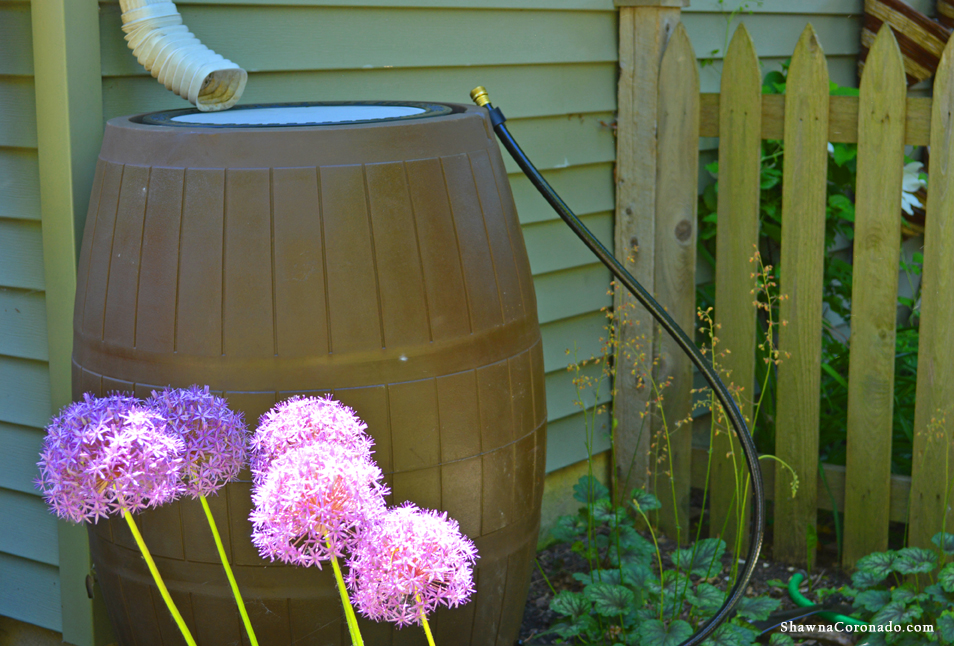
3 – Water with Rain Barrel Water Whenever Possible
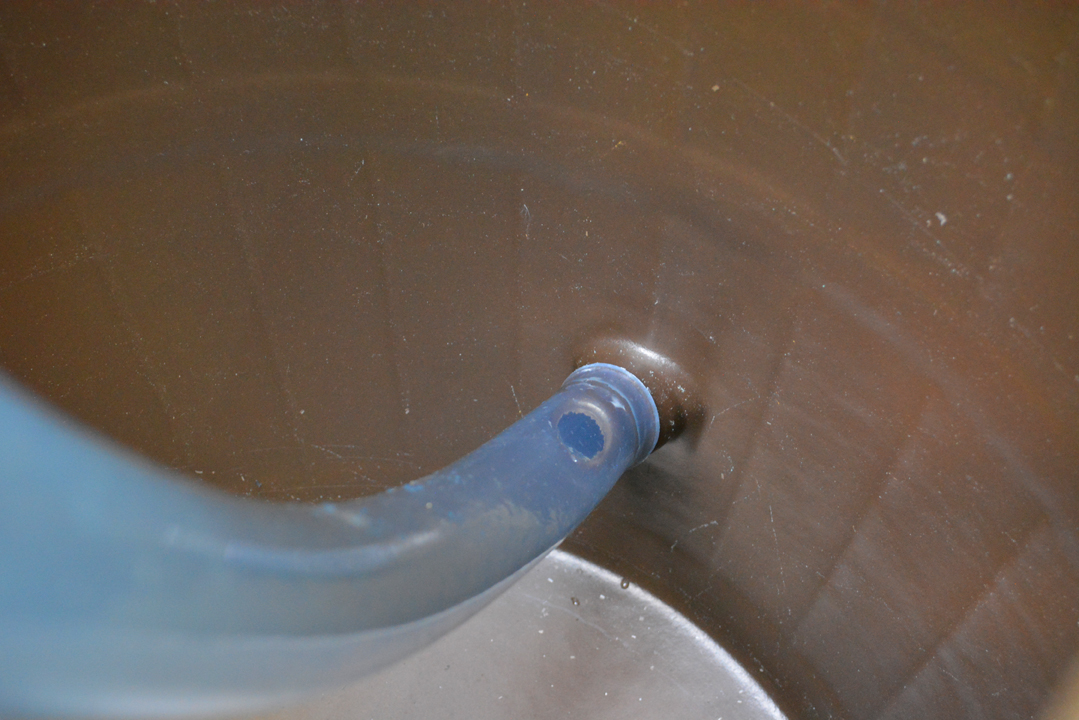
Have you ever noticed that you can water a plant for weeks with city water with no real increase in plant size, then it rains for less than an hour and your plants grow an inch? This is because the chemicals found in most city water like fluoride and chlorine are not a plant’s preferred nutrient choice. A rain barrel, like the Deluxe Rain Barrel from Gardeners.com above, collects and stores rainwater from rooftops, preventing less strain on our stormwater systems. This water is stored in the rain barrel and can be used later for watering your landscape. Stormwater runoff is the leading type of residential non-point source pollution and is a large concern for those monitoring our earth’s oceans and water systems. Typically, water from your roof flows through roof gutter downspouts and becomes stormwater runoff, ultimately moving onto paved surfaces collecting oil and other chemicals, and then eventually funneling into a storm drain. Many of our stormwater systems are over-taxed. All the water from stormwater systems eventually ends up in the ocean.
Rain barrels allow you to collect and use fresh rainwater instead of city water, thereby keeping water out of the stormwater systems. Rain barrels are excellent garden helpers as they save money and provide your garden plants with a drink they really enjoy. Another reason to use a rain barrel is that during the summer months, residential water use increases approximately 40% because of outdoor landscape requirements, so is, therefore, a great way to conserve while you are saving money. Assembling a rain barrel is fairly easy — once it is shipped out to your place, simply pull it out of the box and be sure the backflow tube inside the barrel (right), the overflow hose (below), and the nozzle (below) are firmly attached.
Water conservation is important for the environment and for a homeowner’s bottom dollar. Using the above water-saving tips for watering your garden might seem a small effort, but every little bit counts and truly makes a difference.
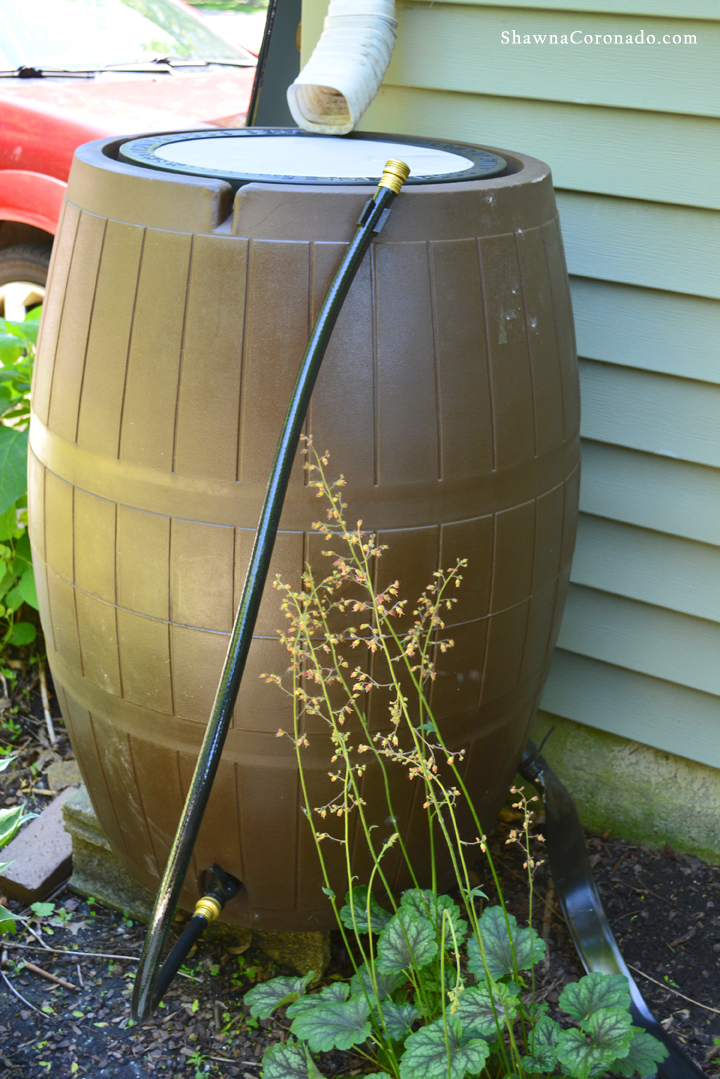

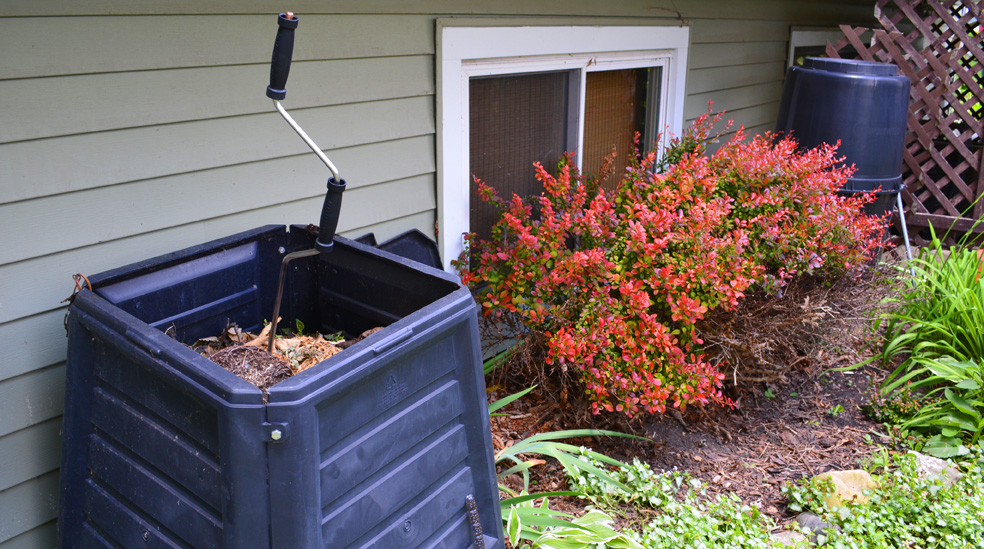
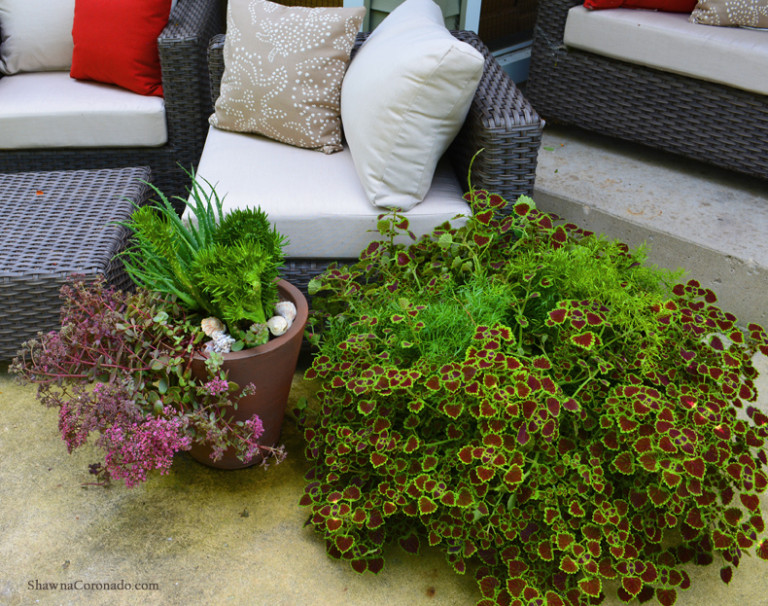
Shawna Coronado, hats off! Thank you for sharing this post. If I opt for a DIY approach maybe I can save more. I think this will actually help me save both water and money!
Keep posting more. Thank you.